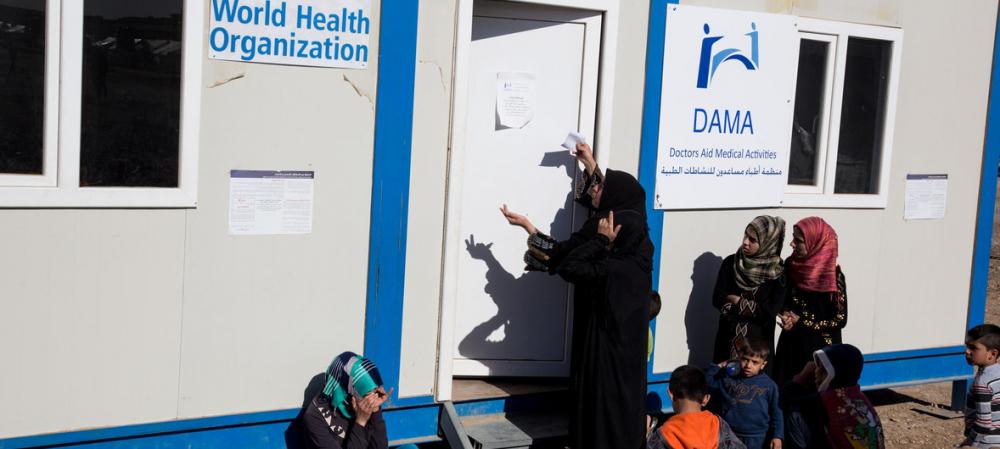JEN | @justearthnews | 19 Jul 2018, 02:04 pm Print

New York: Almost one million vulnerable Iraqis will have to go without basic medicines and other life-saving healthcare if funding is not found to save critical health facilities, the United Nations health agency said on Tuesday.
“Support for health services in Iraq has drastically declined since the end of the Mosul campaign just over one year ago,” said the World Health Organization (WHO), pointing out that 22 health service delivery points have already closed this year, due to funding shortages, “leaving critical gaps” in providing care for displaced persons, and those that have returned to heavily damaged homes.
Moreover, WHO said that 38 per cent of remaining health facilities are in danger of closing by the end of this month, “increasing risk of communicable diseases outbreaks and the roll back of recovery efforts in areas devastated by conflict.”
These facilities offer services to over 900,000 displaced Iraqis and their hosts, helping to treat common diseases, provide gynecological services, vaccinations, nutrition screening and referring complicated medical cases for advanced treatment.
So far, only $8.4 million of the $67.4 million required for the Iraq Humanitarian Response Plan for 2018 has been funded. WHO flagged that $54 million is urgently required to continue servicing Iraq’s newly-accessible governorates, following the military defeat of the ISIL terrorist group, which occupied large swathes of the country after 2014.
“Health cluster partners play a crucial role in providing health care for displaced people and host communities in Iraq. Since 2018, health partners have treated more than 1.2 million Iraqis,” WHO underscored.
Meanwhile, following recent demonstrations over a lack of services and jobs, and the need for improved living conditions, UN Special Representative for Iraq Ján Kubiš urged the Iraqi Government to “fully respect and address the people’s legitimate concerns.”Protest repercussions
According to news reports, widespread unrest began across southern Iraq last week, spreading from the oil-rich city of Basra, in the wake of parliamentary elections held in May. No one party gained an outright majority and a new coalition government has yet to be formed.
In a statement on Tuesday, Kubiš called on politicians to ensure that “the next administration prioritizes good governance, reforms and the fight against corruption that will enable economic development and progress, job creation and delivery of critical public services.”
He regretted the loss of life and injuries on both sides, as well as the destruction of public and private property.
Kubiš underscored the people’s inalienable right to free expression, including participating in peaceful demonstrations “without fear and intimidation or arbitrary detentions while abiding by the law,” and “unfettered access to information.”
“It is the duty of the authorities to enable such lawful demonstrations and to protect their participants,” he said.
He added that while maintaining law and order, security forces must exercise restraint and avoid disproportionate, lethal force.
The UN envoy also warned against “allowing intruders and opportunists to exploit the otherwise legitimate demonstrations for their political purposes, to trigger disturbances.”
OCHA/Sylvia Rognvik
- WHO prequalifies new oral simplified vaccine to combat cholera, here is all information you need to know
- Pandemic experts sound alarm over the spread of avian influenza to humans
- Nigeria is now the first country to introduce 'revolutionary' meningitis vaccine: WHO
- Pregnancy accelerates biological ageing in healthy, young adult population, finds shows
- Hepatitis virus killing 3500 daily, warns WHO report






